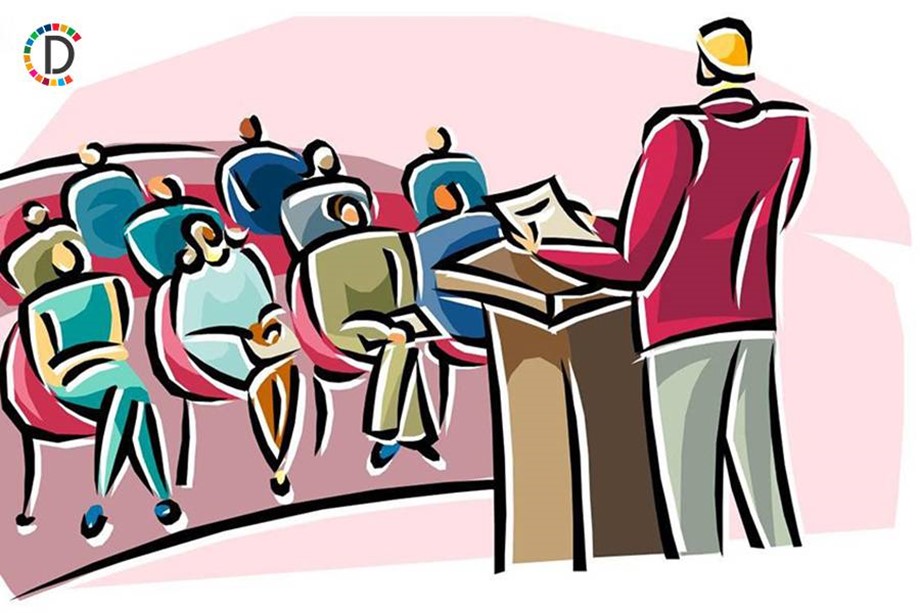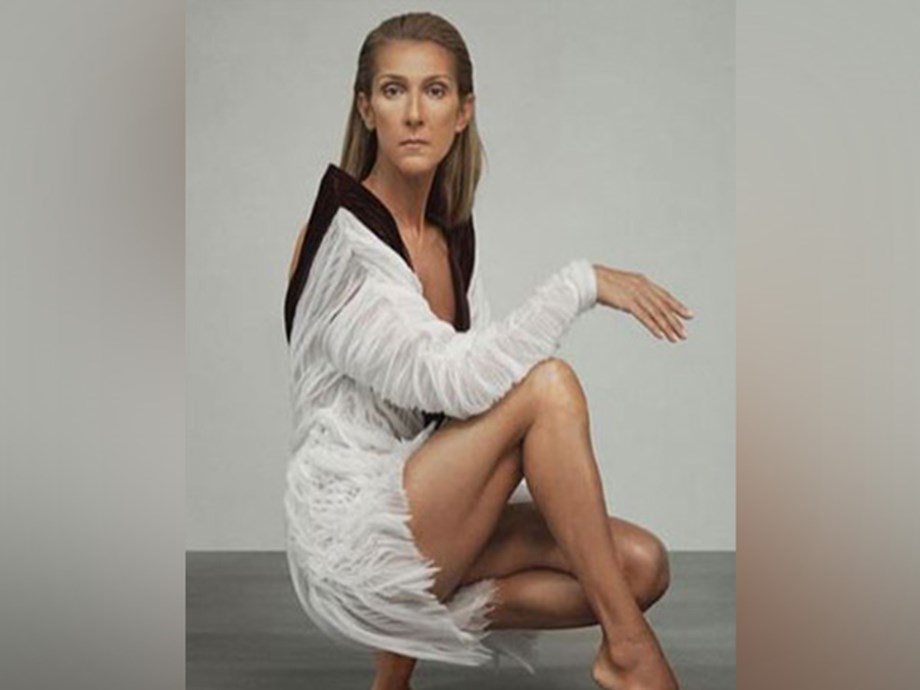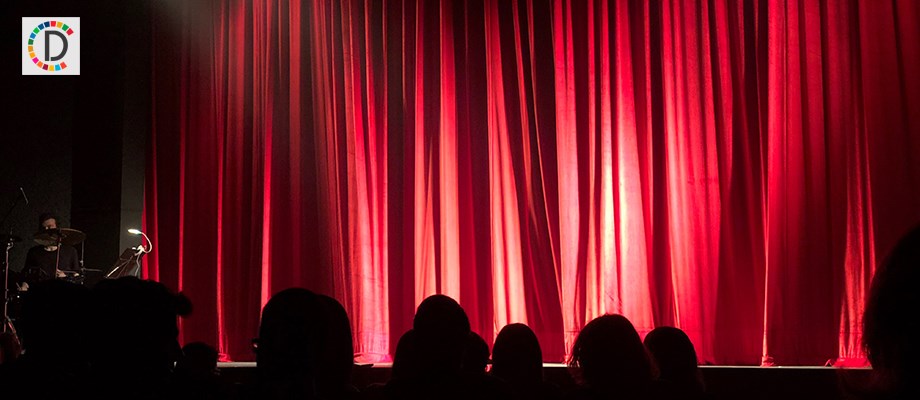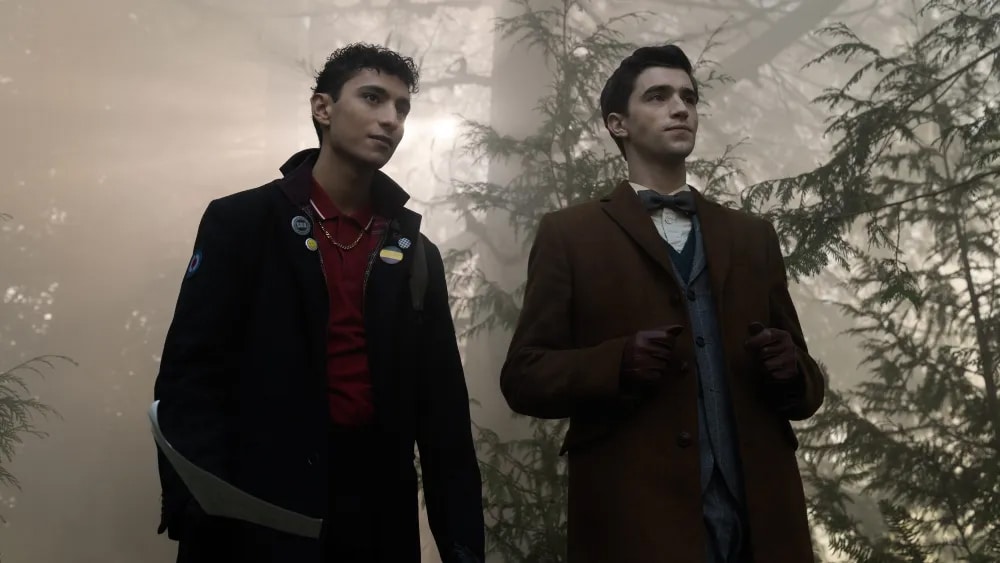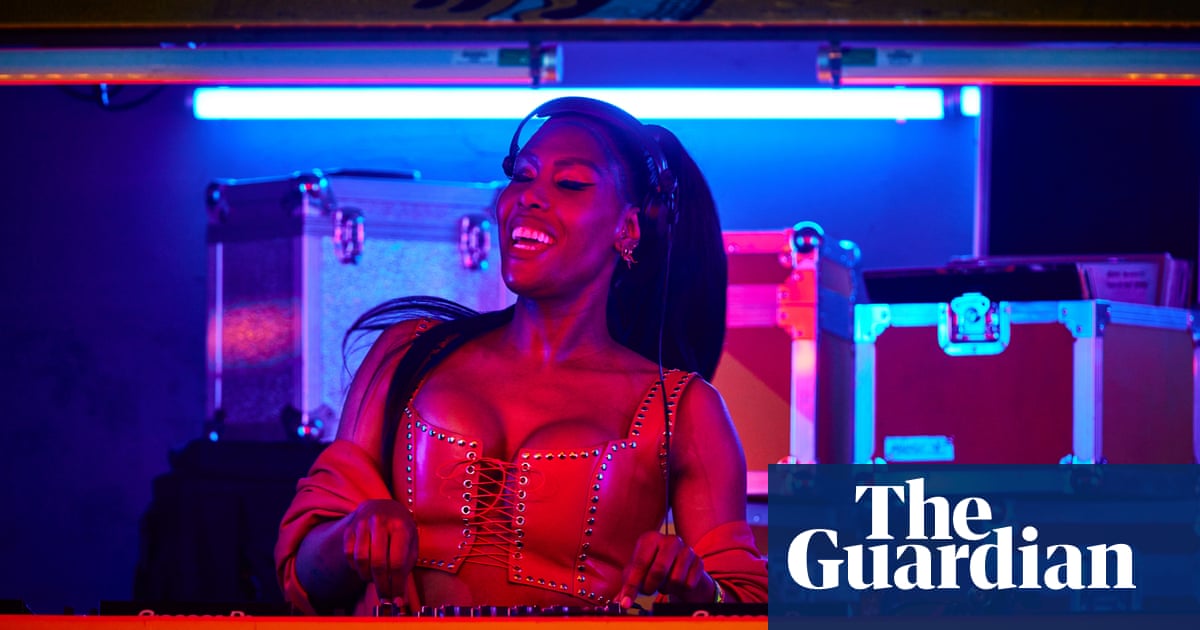
DJ Honey Dijon: ‘Dancefloors do what religions and governments can’t’
In spite of its origins in Black and queer working-class communities, dance music has long been co-opted and whitewashed. As evidence, see producer Kaytranada being the first Black artist to win best dance/electronic album at the Grammys as late as 2021, or the recent surprise at Drake and Beyoncé putting out work rooted in house music, in spite of its origins in Black and queer working-class communities. “I have a word for it,” offers internationally renowned DJ and producer Honey Dijon, with a wry but assertive laugh: “Colonisation.”
And like a forward-thinking museum or gallery owner – but with rather more flair for shoulder pads and ballroom attitude – Dijon is decolonising culture. We meet ahead of her headline show at Koko, in London, where her set shines a light not just on the humid mass singing along beneath an enormous disco ball, but also on dance music’s history of Blackness, queerness and transness, which peaks when she plays an exuberant remix of the late disco icon Sylvester, perhaps the first out gay pop star. “House music was sold and repackaged to the people who created it,” Dijon says. “It has gone from culture to entertainment, and what I try to do in my work is constantly protest against forgetting where this music came from – not in a nostalgic way, but in a critical way.”
Born in Chicago, Dijon came of age in the mid-80s, when house music burst out of her city. Sitting on a sofa in a London hotel room, she recalls a childhood being bullied for being gender non-conforming, and how art and fashion provided safe spaces. She talks about her love of fashion magazines, bell hooks and James Baldwin, and points out that – for all she is dressed simply in jeans and a T-shirt – she’s wearing a belt with “Slave to the rhythm” emblazoned on it, a homage to Grace Jones which comes from her own fashion line, Honey Fucking Dijon.

Dijon was drawn to the house scene’s early parties in high school auditoriums and skating rinks. “I remember getting so lost in the music – it became an obsession,” she says. She became a dancer and amassed a vast array of records; Chicago legends Derrick Carter and Mark Farina shared a loft and she watched them to learn how to DJ. She moved to New York in the late 90s and started playing on Monday nights for $60 and a Coca-Cola. A few years later, she would be playing clubs in Europeincluding Berghain in Berlin, and by the early 2010s, her career had finally taken off. She has done remixes for Lady Gaga and Madonna, and is rumoured to have worked on Beyoncé’s forthcoming album, a rumour she won’t confirm. Dijon also makes her own colourful music, for largely the same reasons she started DJing. “I wasn’t hearing the house records I wanted to hear – so necessity is the mother of all invention,” she says with a drawl. Her second album, Black Girl Magic – a joyful testament to love, healing, community care and protest – is set for release later this year.
In the past few weeks, Dijon has played Coachella, Las Vegas and Grace Jones’s Meltdown festival in London. Glastonbury awaits this weekend. She shrugs off her relentless schedule, and underlines her mission. “Dancefloors do what religions and governments can’t, – bringing people together from all walks of life. But the people that created this culture are not profiting from it. Until we have people of colour as the festival owners, promoters, booking agents, clubs, then it’s all just optics.”
She curated the lineup for her Koko show to include Pxssy Palace, the UK nightlife collective that whose aim is to create a space for marginalised queer people of colour. “It’s not optics – these people are talented,” Dijon says. “We’re showing dance music that there are queer people of colour who sell out venues.”
That level of support was more difficult to come by in Dijon’s own career. It’s telling that, on Instagram, she repeatedly uses the hashtag #bethethingyouwishtosee – it might seem a little trite, but this is the framework she has built a life with. “I had to create the space I occupy,” she says. “I transitioned at the same time I started my DJ career, in 1998, which was at a time when there was hardly any trans visibility.”

It was a struggle, she recalls, as the only places that would book her were gay clubs: “I didn’t play pop music, that wasn’t my history. But I would take those gigs, because I would have DJ’d the opening of a can of paint back then if it meant I could DJ. I wasn’t gay enough for the gay crowds, and I was too gay for the underground crowds, so it was difficult for me.”
As trans visibility has increased, Dijon has noticed a change. “I stuck around long enough for there to be a culture shift: ‘Why aren’t there women on line-ups?’ Though at that time, it was white women – and it still is. But at least that conversation was opening.” She frowns. “I still find it challenging. I tick a lot of boxes for a lot of people, but I also feel like I have the skillset and talent as an artist to really not have to be tokenised. I show up and I bring culture with me. So I’m grateful for my trauma, because it taught me how to figure it out. My success is that I survived and persevered.”
We touch on white feminism and fragility, and the layers of transphobia often embedded within those spheres, notably here in the UK. She is unfazed: “I don’t really give a shit what white women think about my womanhood. As someone who does not walk in those shoes, you cannot define me. I’m self-determined, we all are, I don’t need your permission.” Trans people, she continues, are “fighting for humanitarian causes, not gender issues. We just want our humanity recognised. I’m a human being and I share this planet with you, and just because you have a certain colour of skin or a certain biology doesn’t mean you’re better than me. We need to learn our own power and stop trying to borrow theirs, ’cos they ain’t giving it up.”
I ask if it’s at all frustrating that so much of our conversation ends up rooted in politics and identity, rather than us simply talking about the music. She shrugs. “The personal is political. I think when you’re not a cis-hetero white man, you’re political by existing, pretty much. And there’s nothing wrong with it being political – if you think about the music from the 70s, it was conscious music about civil rights and empowering people of colour. Music is a very powerful tool to empower people. So I don’t have a negative reaction to that, because music can be political. But it can also be a lot of other things, it can be sexual, it can be pleasure, it can be release, it can be escape.” Hours later, in a crowd of flailing, uninhibited limbs belonging to people of all ages and backgrounds, it feels like all those things at once.















































